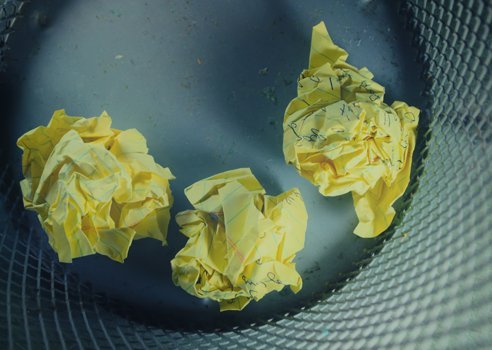Reading time: About 3 minutes
Are you having trouble persuading yourself to write? If, like many of us, you marinate yourself in guilt, perhaps it’s not so surprising you have writer’s block. Here are five ways to cure the problem.
One of the few benefits of aging is that you become less willing to lie. Thus, recently, when my flute teacher asked me how my week’s worth of practice had gone I was able to look him in the eye and say, “badly.” Twenty years ago, I would have said, “uhhh, okay,” and (mistakenly) hoped like hell it wouldn’t have been obvious.
My teacher looked at me with concern and asked, “What went wrong?” And before I could launch into my excuses — we’d been away for the weekend, we’d hosted several dinner parties etc. — he continued: “Did you not like the sounds you were producing? Did you have a hard time finding your embouchure? Did you not like the pieces you had to practice?”
All of a sudden, I was hit with an aha! moment. Perhaps my inability to practice heartfully was not a sign of laziness or lack of focus. Perhaps I had a valid reason for not practicing well. And if I could figure out what the reason was, maybe I could fix it!
I realized I’d already done the same thing with my writing. And you can, too.
If you’ve read my book, 8 1/2 steps to writing faster, better, you’ll know I talk about what I call the “Calvinist” attitude many of us have towards writing. (Calvin is pictured, above.) We think that unless we’ve applied our seats to our chairs and have our fingers flying across the keyboard, then we’re not working hard enough.
In fact, the problem is usually far more complex then that. So, here are five questions you can ask yourself:
1) Am I writing too soon?
I’m convinced that many of the so-called “blocked” writers are people writing before they are ready. I discovered this problem in my own daughter several years ago. She was trying to produce a social studies essay and staring at the computer, in tears, saying she didn’t know how to begin. But as soon as I spoke with her, I realized she hadn’t finished her research. No matter what teenage girls tell you, the writing process isn’t magical! She needed to study the material first and then she could write about it. Now let me ask you: Are you so fearful of your deadlines that you’re doing the same thing? Remember, research and thinking must always come before the actual writing!
2) Do I need refilling?
If we’re empty, we cannot write. I know this might sound suspiciously like procrastination, but, honestly, if you’ve been exhausting yourself writing, make sure you get some rewards too. I’m not saying you need to spend a lot of money — simple things, such as listening to music, reading a good magazine article or book, taking a walk in the park — can fill your mind with the raw material you need to be able to write. (Yes, you need this raw material even for non-fiction!)
3) Am I following a model?
Don’t feel you need to re-invent the wheel every time you write. Whether you’re writing an article, a book, an annual report or a newsletter, undoubtedly, something similar has been done before. So find a good example and then copy it! Note, I don’t mean word-for-word copying (AKA plagiarism) but I do mean studying both the style and structure of the piece and learning the infinite lessons you can from that.
4) Am I creating the right conditions?
This is pretty simple, yet it’s so easily overlooked. You need time to write and you need to be in the right frame of mind. Know your own rhythms (for example, are you a morning or a night person?) And, above all, turn off your email and forbid yourself from looking at Google. Don’t let yourself get distracted.
5) Am I writing without editing?
Many writers insist on producing a sentence and then immediately editing it. As someone who did this for years, I urge you to stop. Now! It’s a destructive habit that will only slow you down. Remember, the golden rule of the first draft: You’re not trying to generate excellence — you’re just trying to produce lots of words so you have plenty to edit.
As writer Cecil Castellucci says: “The very best flowers are fertilized by crap.” Make my day: Produce a lot of crap. And then edit it into excellence.


